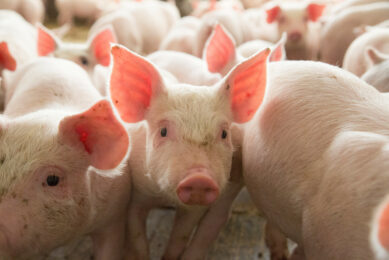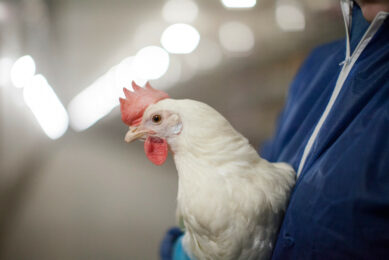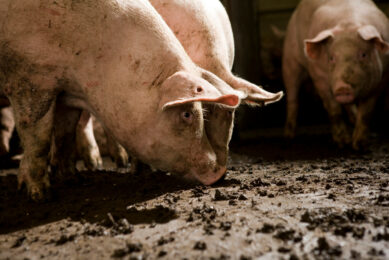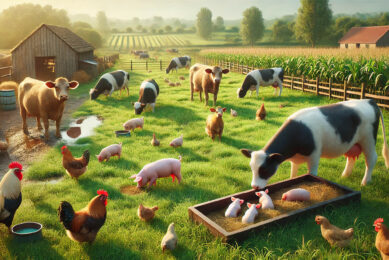Good gut reaction relies on early life nutrition
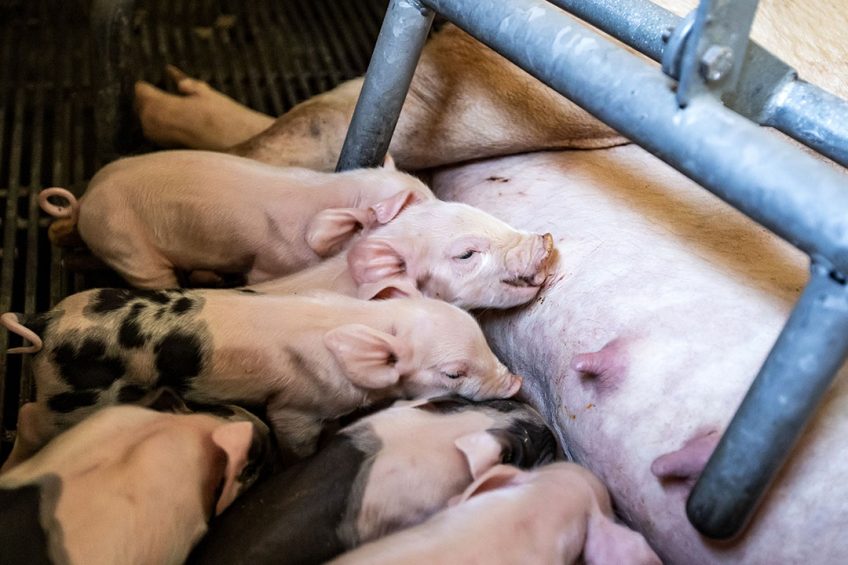
Getting piglets off to a healthy start in life can have a significant impact on the health and performance of these animals throughout their lifetimes. The key to achieving this involves establishing a favourable microbial population as soon as possible after birth by focusing on the early-life nutrition of the piglet.
There is wide interest in improving natural nutritional strategies to promote gut health and development in young pigs, with the aim of maximising their lifetime growth performance and minimising antibiotic use. But what does the term “gut health” actually mean? Several recent articles and reviews have provided generalised criteria for the assessment of gut health in young pigs, which include:
- The efficient digestion and absorption of feed;
- A stable and suitable microbial population;
- An effective intestinal immune system;
- The absence of disease; and
- A protective and functional gut barrier.
If the gut is not healthy and functioning optimally, the piglet’s overall health, welfare and performance will suffer and, ultimately, so will the producer’s profit margins. Therefore, to give piglets the best possible start in life, producers need to focus on promoting favourable microbial communities within the gut, optimising gut structures to ensure effective nutrient absorption and supporting the immune system, as all of these components are intrinsically linked with gut health.
Early-life nutrition
Over the last 40 years, Alltech has conducted extensive research studying monogastric gut health and has designed several gut health management programmes that focus on supporting animal performance from birth by promoting favourable bacteria communities, building natural defences and maximising growth. The Seed, Feed, Weed (SFW) concept is one such programme that is designed to modify the gut microbial population to establish favourable and more diverse microbial populations after birth. Establishing and maintaining a beneficial and diverse gut microbiome in early life is vital in pigs. This is because the first microbes to colonise the gut are central to the establishment of permanent microbial communities, which affect the growth performance and health of pigs later in life. The SWF programme supports gut health in piglets in 3 different ways.
Seeding the gut with favourable organisms
It is vital to “seed” the intestine with the correct bacteria as soon as possible after birth. The first organisms to colonise the gut will determine the composition of the flora by creating the micro-environment necessary to establish a complex microbial community and optimal architectural development. With the right intestinal microflora now in place, piglets show improved early growth, feed conversion, uniformity and liveability.
Feeding the favourable organisms
In addition to seeding the gut with the correct pioneer species, it is crucial to enhance the capacity of favourable organisms to colonise and rapidly dominate the microbial community in the small intestine. Once a beneficial microbial community and intestinal ecology is established, the villi will flourish. This step is critical for piglet health and feed efficiency, because the healthier a piglet’s villi, the more efficiently nutrients will be absorbed.
Weeding out the unfavourable micro-organisms
The gut can also contain harmful pathogenic microbes (e.g. enterotoxigenic Escherichia coli), which can damage the intestinal villi. It is, therefore, important to “weed them out” before they can attach to the gut lining and replicate enough to cause disease. By blocking the attachment mechanisms of unfavourable organisms with a type-1 fimbria blocker, their capacity to compete with the favourable organisms (e.g. Bifidobacterium and Lactobacillus) in the gut is reduced. Minimising the gut’s exposure to these harmful microbes will help to improve the animal’s natural defences and shorten its recovery time from disease.

Ensuring improved gut health
The “weed” component of SFW is integral to ensuring improved intestinal health and immune status in piglets and represents 80% of the effectiveness of the programme. Incorporated into the SFW programme are feed materials such as Actigen (Alltech), which have been shown to help maintain a healthy gut and support the normalising of gut microflora. This in turn may help to reduce the risks associated with development of antimicrobial resistance. Recent data from studies focusing on improving gut health in young piglets demonstrated that the SFW programme can help reduce E. coli attachment and the adhesion of Salmonella Dublin to porcine intestinal cells.
Weaning represents the most challenging event in modern pig production, as piglets are subject to myriad stress factors all at once
Furthermore, the reduction of E. coli and Salmonella attachment to intestinal cells resulting from the SFW programme can have a direct effect on lowering inflammatory markers for infection. The dietary inclusion of zinc oxide (ZnO) is currently used to suppress the growth of pathogenic bacteria in the gut. However, as the EU swine industry prepares for the ZnO ban, which will come into effect in 2022, establishing a healthy gut with a reduced pathogen load is now more important than ever – and the SFW programme could potentially help producers move towards ZnO-free production systems.
Stress factors
Weaning represents the most challenging event in modern pig production, as piglets are subject to myriad stress factors all at once (e.g. an abrupt dietary change, from sow milk to solid feed; a new environment; mixing with unfamiliar pigs from other litters; and maternal separation). Consequently, newly weaned piglets suffer from drastic changes in their intestinal physiology, and these changes are characterised by villus atrophy and crypt hyperplasia in the small intestine, resulting from a reduction in energy intake when the piglet is adjusting to solid feed.
However, several studies have demonstrated a significant improvement in the intestinal structure of piglets post-weaning via supplementation of the feed materials described above in creep and starter diets. As a result, nutrient absorption and utilisation increased, and this was followed by an improvement in piglet weight gain and feed conversion efficiency. Therefore, if producers can support gut morphology through natural nutritional solutions, the digestive, absorptive and secretory ability of the intestine will increase, and this can help to mitigate the negative impacts of weaning on pig health, growth and profitability.
Early-life nutrition is critical if we are to achieve optimal lifetime piglet performance and health. Alltech’s SFW programme is designed to impact gut health, affecting both microbial diversity and gut structure. This is essential for the young piglet and helps to ensure optimal lifetime performance and profitability for producers in a sustainable manner. The use of such gut health management programmes will also play a pivotal role in helping producers work towards antibiotic- and ZnO-free production.
Author
Dr Hazel Rooney, pig technical coordinator, Alltech Ireland



